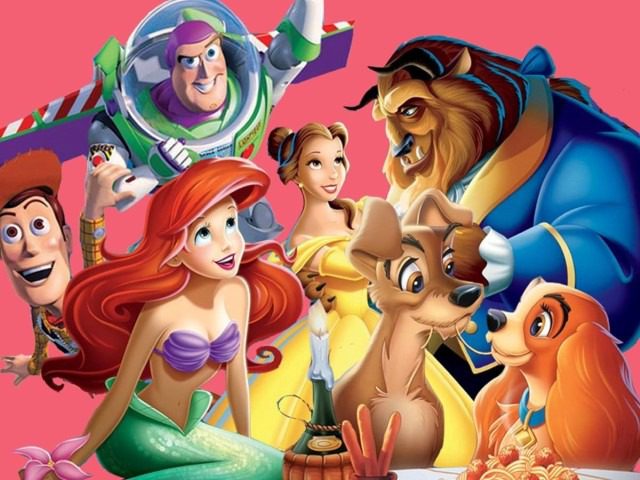Toxic Messages in Disney Cartoons
Beauty and the Beast: This classic tale presents a potentially problematic portrayal of romantic relationships. It normalizes the idea that love can change an abusive or controlling partner, which can be dangerous for young viewers. The depiction of the Beast’s transformation after Belle’s love could inadvertently convey the message that enduring abuse in the hope of changing someone is a viable path to a healthy relationship. This perpetuates the misconception that one person can “fix” another through love, ignoring the importance of boundaries and addressing toxic behaviors.
Cinderella: The narrative focuses on the concept of “love at first sight.” By depicting Cinderella’s immediate connection with the prince, the fairy tale downplays the importance of knowing and understanding someone before committing to a relationship. This portrayal can instill unrealistic expectations in children, suggesting that true love and connection should happen instantly without the need for deeper emotional understanding or compatibility.
Snow White: This fairy tale perpetuates the idea that physical appearance is the primary factor in love. The emphasis on Snow White’s beauty and the prince’s immediate infatuation reinforces the idea that physical attractiveness is crucial to love and relationships. It ignores the importance of personality, values, and compatibility in fostering meaningful relationships.
The Lion King: Scar’s manipulative and powerful nature presents a distorted portrayal of ambition and dominance in relationships. It portrays a toxic portrayal of power dynamics where manipulation, deceit, and control are normalized, potentially influencing children to perceive these behaviors as acceptable or even admirable in their quest for power or control within a relationship.
Somatic Exercises for Calming
The Little Mermaid: Ariel’s sacrifice of her voice for the possibility of love with Prince Eric promotes the idea that it is acceptable to drastically change oneself for the sake of love. This narrative may inadvertently teach children that changing fundamental aspects of their identity is a justifiable sacrifice for a romantic relationship, ignoring the importance of self-acceptance and individuality.
Bambi: While it portrays themes of resilience and strength in the face of adversity, the depiction of the loss of a parent may desensitize children to the emotional impact of such events. This may lead to a diminished understanding of the need for emotional support and coping mechanisms during times of grief or parental absence.
Sleeping Beauty: The story of a passive princess waiting to be rescued by a prince reinforces the outdated idea that women are passive recipients of love and need a man to save them. This depiction diminishes the agency and independence of female characters, contributing to the perpetuation of gender stereotypes and limited representations of female strength and autonomy.
Peter Pan: This story, while seemingly whimsical, can inadvertently encourage the avoidance of responsibility and growth. By glorifying eternal youth and avoiding the maturity associated with adult relationships, it could subtly discourage children from accepting responsibility and commitment, hindering emotional growth and the ability to form meaningful relationships.
Toxic Messages of Disney Cartoons
Each of these Disney cartoons carries its own underlying messages about love, relationships, and gender roles. While they offer entertainment, these narratives can also shape children’s perceptions of what constitutes a healthy relationship and their roles within it. It is essential that caregivers and educators engage in discussions that help children critically analyze these themes and develop a nuanced understanding of love, respect, equality, and personal freedom within relationships.

Keywords: Toxic messages of Disney cartoons, gestalt psychotherapy, somatic experiencing therapy, psychotherapist Zagreb, Licensed therapist near me in Manhattan NYC, Affordable therapy services in New York State, Holistic psychotherapy sessions in NYC, Somatic Experiencing therapy for trauma recovery in New York City, NARM therapy in Brooklyn, Licensed couples therapy in Manhattan, Gestalt therapy near me in NYC, Marriage counseling in Queens NYC, Therapy for anxiety treatment in NYC, Experienced psychotherapist in New York, Licensed psychotherapist near me in NYC, Somatic Experiencing therapy sessions in New York, Trauma therapy and counseling in Manhattan, Gestalt therapy sessions in New York City, Therapy sessions for emotional regulation in New York, Trauma therapy near me in Brooklyn New York, Licensed mental health therapist in Manhattan NYC, Depression therapy in New York, New York City therapist experienced in PTSD treatment
*Photo: GettyImages
*Contact: Make an appointment
*For companies: Creative manager
Bradshaw Meditation for Inner Child Work








